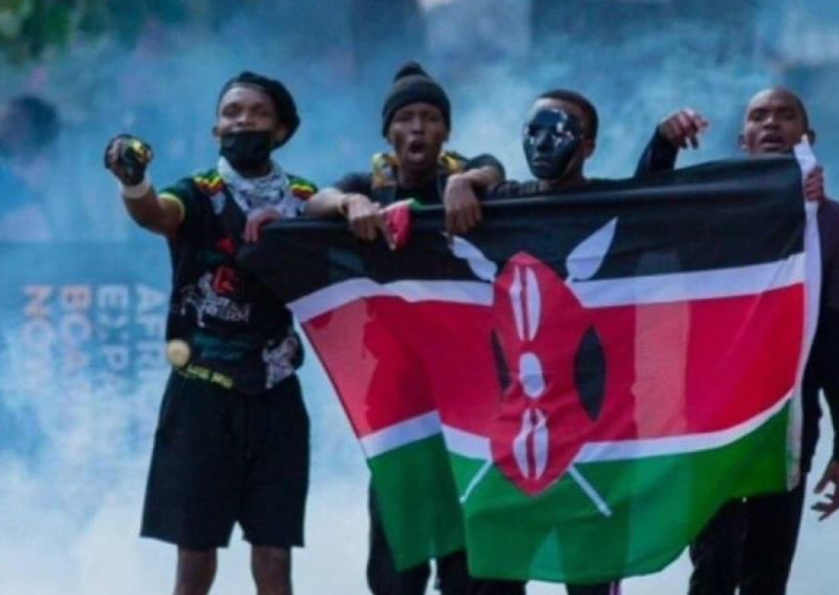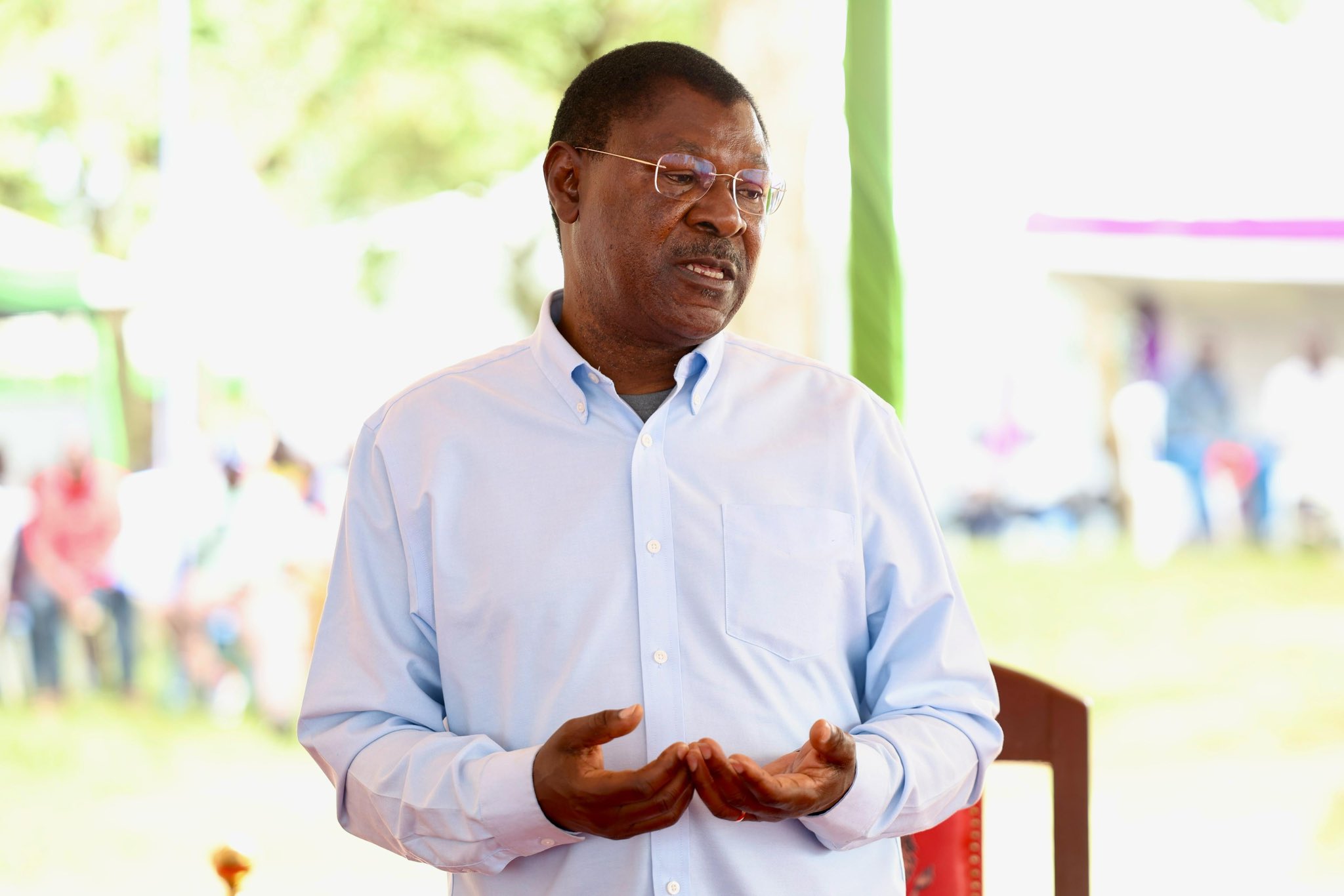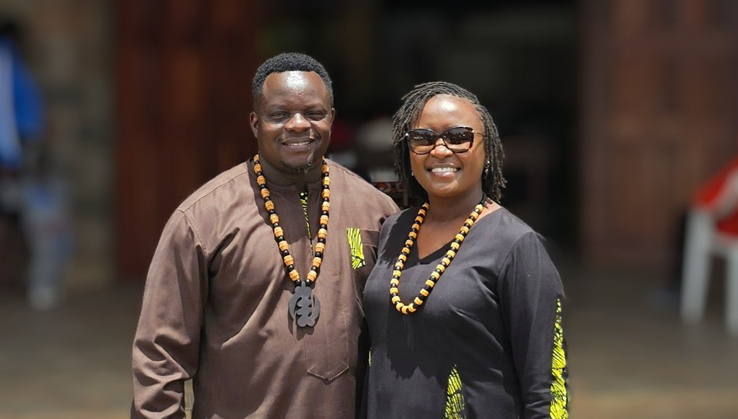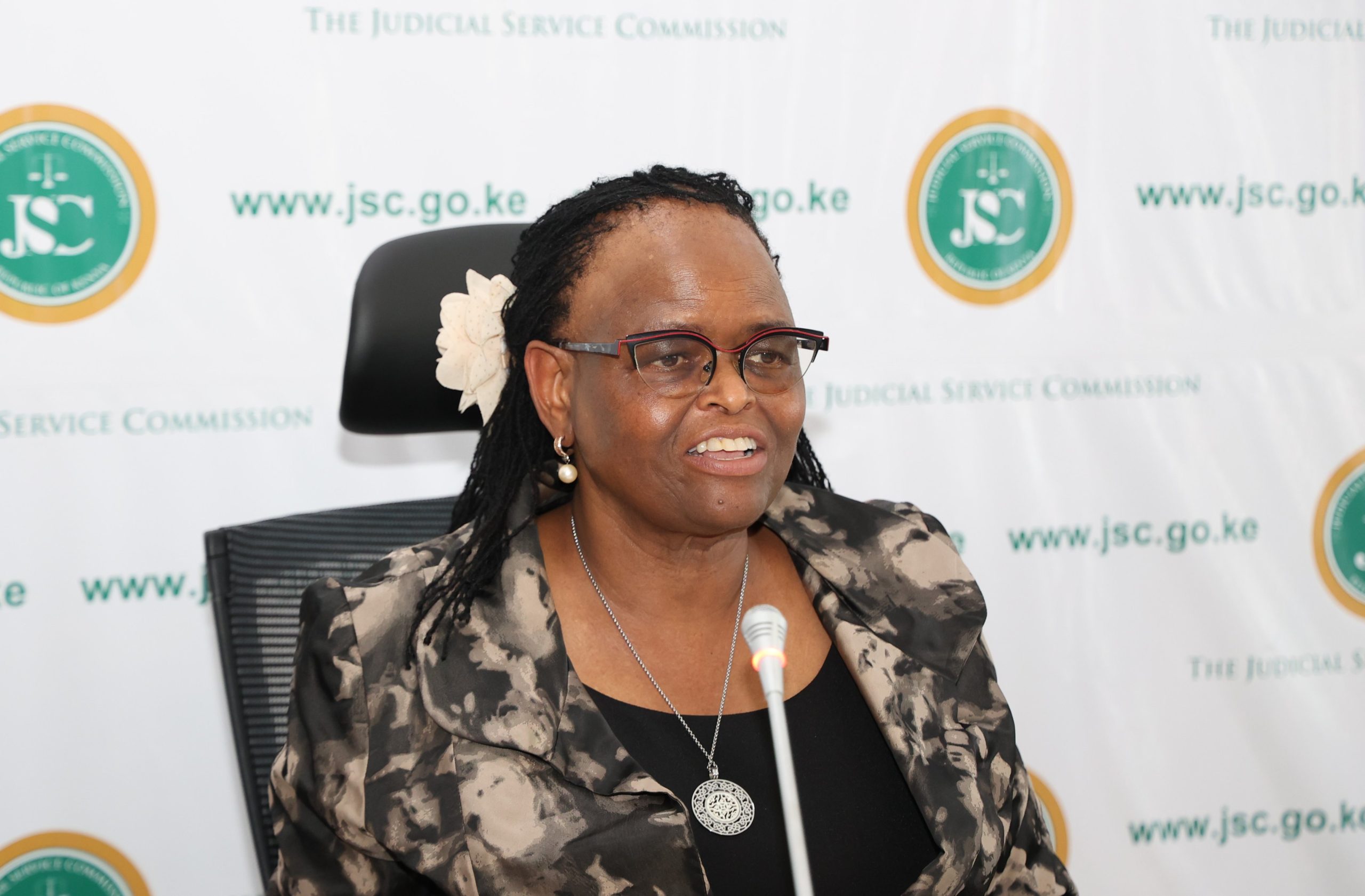One thing the political class didn’t see coming in 2024 was the Kenyan youth uniting to challenge the high cost of living, hefty taxes, and bad governance.
They dismissed these youngins, and honestly, who wouldn’t? These were the types that did “get ready with me for maandamano” videos, snapping selfies with iPhones, and ordering KFC during protests. Not exactly your typical revolutionaries, but who said people should look like their problems? They slayed while at it.
#OccupyParliament protests
Gen Zs and the general public mobilized through social media platforms such as X, TikTok, and Instagram, circulating calls to action, and encouraging each other to hit the streets. It all started with social media hashtags; #RejectFinanceBill2024, and #OccupyParliament.
On June 18, 2024, protests began under the banner “Occupy Parliament,” with hundreds gathering in Nairobi to oppose the Finance Bill 2024 ahead of its parliamentary debate. Demonstrators intended a peaceful sit-in outside Parliament, but police used tear gas and made several arrests.
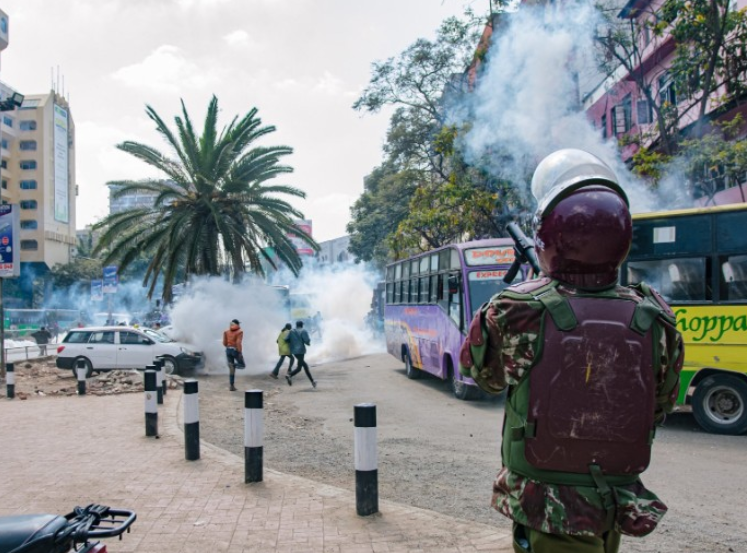

This prompted backlash from human rights groups and activists over police brutality. By June 20, 2024, the protests had spread to more than 19 counties.
Despite public dissent, Parliament passed the bill with 204 MPs in favour and 115 against, intensifying the protests as citizens shared MPs’ contact details to pressure them directly. Amendments to reduce some taxes were proposed but failed to appease the public.
The death of two protesters on June 22, 2024, one from a gunshot wound and another from injuries caused by a tear gas canister sparked the “7 Days of Rage” momentum. Demonstrators called for a nationwide strike, with protests escalating to symbolic actions like blocking roads and chanting anti-government slogans at public gatherings.
During the “7 Days of Rage,” new slogans and hashtags gained momentum both on the streets and across social media platforms. Citizens demanded a complete withdrawal of the bill, rejecting any amendments, under the rallying cry of #AngukaNayo. This period also marked the debut of the hashtag #RutoMustGo, as the public outrage had escalated beyond measure.
On June 25, demonstrators stormed Parliament, setting parts of the building ablaze and clashing violently with police, who used live ammunition. The military was eventually deployed to restore order. This marked the most serious attack on government structures in Kenya in decades.
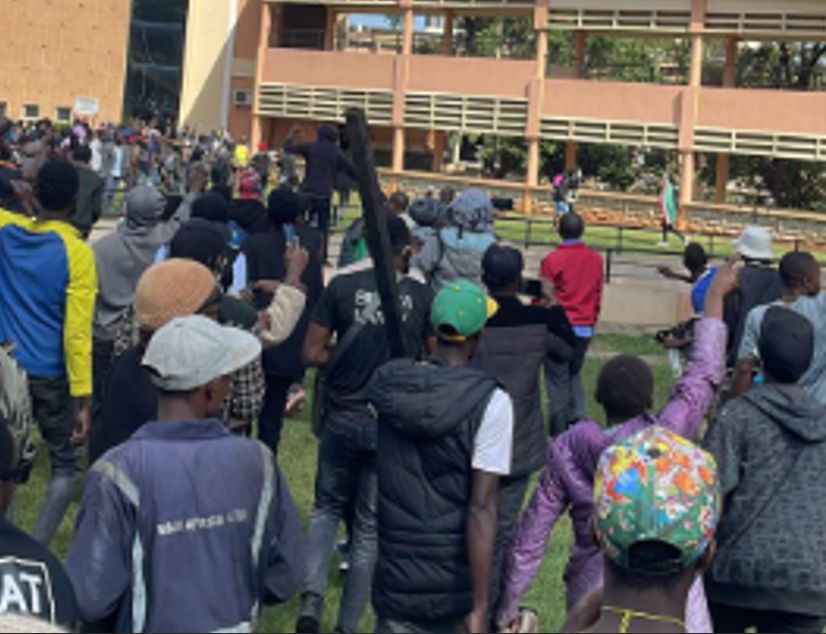

These were the events that followed after the deadly protests on June 25, 2024.
1. Withdrawal of Finance Bill 2024
Following the escalation of protests, President William Ruto announced on June 26, 2024, that he would not sign the Finance Bill into law. In a televised address from State House in Nairobi, he declared the withdrawal of the bill.
“Listening keenly to the people of Kenya, who have said loudly that they want nothing to do with this Finance Bill 2024, I concede and therefore I will not sign the 2024 Finance Bill and it shall subsequently be withdrawn,” he said.
President Ruto pledged to engage with young people to better understand their concerns and directed that further austerity measures be implemented to reduce government expenditure. These measures targeted the Executive Office of the President and extended to all branches of government, including Parliament, the Judiciary, and county governments. The President emphasized the importance of ensuring the government lived within its means, aligning with his administration’s fiscal goals.
“I also propose that within the next 14 days, a multi-sectoral, multi-stakeholder engagement be held to chart the way forward on matters relating to the content of the Bill as well as auxiliary issues raised in recent days on the need for austerity measures and strengthening our fight against corruption,” the President said.
Adding;
“I direct that operational expenditure in the Presidency be reduced to remove allocations for the confidential vote, reduce travel budget, hospitality and buying of vehicles, renovations and other expenditures.”
2. Bill back to Parliament
On July 25, 2024, the National Assembly voted to reject the Finance Bill, 2024, in its entirety. This decision followed President Ruto’s exercise of his constitutional powers under Article 115(1)(b) to return the bill to Parliament for reconsideration.
Speaker Moses Wetang’ula announced that the Departmental Committee of Finance and National Planning had reviewed the President’s reservations and agreed with his recommendations. Any member seeking to reinstate clauses of the bill was required to secure the support of at least two-thirds of the National Assembly, in accordance with Article 115(4) of the Constitution.
Following a vote by the Committee of the Whole House, members supported the President’s recommendations and rejected the bill. Speaker Wetang’ula subsequently clarified that there was no bill to present to the President for assent.
3. Ruto hosts an X-Spaces discussion
On July 6, 2024, President Ruto participated in a live discussion on X Spaces to engage directly with citizens, just ten days after the deadly protests. Despite technical challenges and false starts, the session peaked at over 163,000 participants.
The discussion, moderated by social media user Osama Otero, who had been a vocal critic of the Finance Bill, allowed participants to pose direct and raw questions to the President. Speakers challenged Ruto on his government’s record and policies.
4. Ruto fires cabinet
On July 11, 2024, President Ruto dismissed his entire cabinet, save for his then Deputy President Rigathi Gachagua and Prime Cabinet Secretary-cum CS for Foreign and Diaspora Musalia Mudavadi to pave the way for a broad-based government.
The Head of State also dismissed the Attorney General.
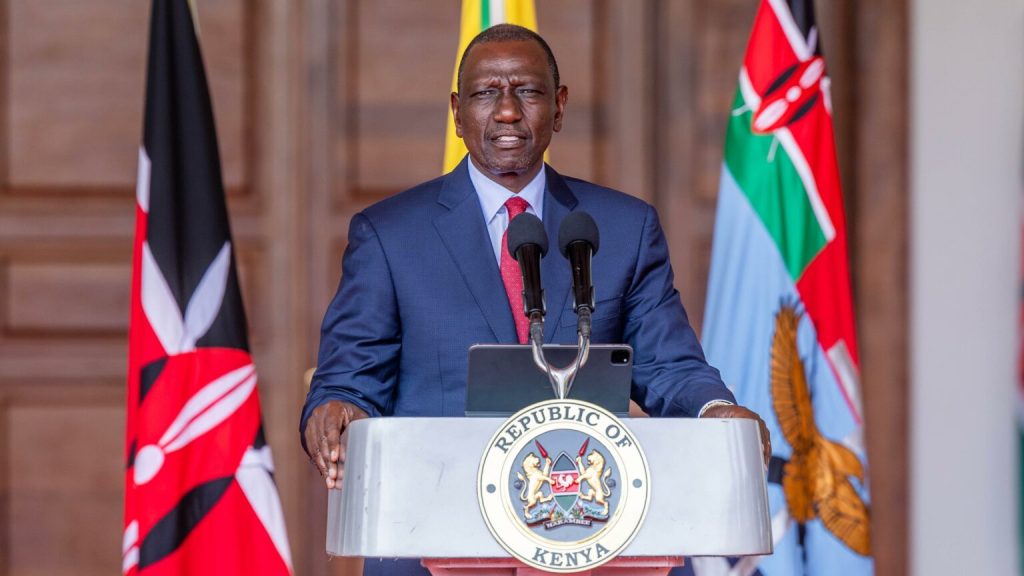

“During this process, the operations of government will continue uninterrupted under the guidance of Principal Secretaries and other relevant officials,” he said.
5. Opposition joins Ruto’s gov’t
In forming his new cabinet, President Ruto brought in notable figures from the opposition’s Orange Democratic Movement (ODM) to form part of his broad-based government aimed at ending political divisions. This move included the nomination of four prominent ODM leaders: John Mbadi (National Treasury), Opiyo Wandayi (Energy and Petroleum), Ali Hassan Joho (Mining, Blue Economy, and Maritime Affairs), and Wycliffe Oparanya (Cooperatives and MSME Development).
The president said the decisions were made after consultations with various stakeholders and were intended to ensure fair leadership across the country.
Before announcing the new nominations, Ruto had said that he intended to engage in extensive consultations to establish a government that reflected national unity.
“I will immediately engage in extensive consultations across different sectors and political formations, with the aim of setting up a broad-based government that will assist me in accelerating and expediting the necessary, urgent and irreversible, implementation of radical programmes to deal with the burden of debt, raising domestic resources, expanding job opportunities, eliminate wastage and unnecessary duplication of a multiplicity of government agencies,” he said when he dissolved the Cabinet.
Supplementary Appropriations Bill 2024
On August 5, 2024, President Ruto signed the Supplementary Appropriations Bill into law. The bill, passed by the National Assembly on July 31, 2024, allocated resources to critical sectors while reducing government expenditure.
It set aside Ksh120.7 billion to support education reforms, including the confirmation of Junior Secondary School teachers, and Ksh31.3 billion to fund the Higher Education Loans Board.
Healthcare reforms and Universal Health Coverage received Ksh16.2 billion, while farmers were allocated Ksh20 billion to boost agricultural productivity. The bill also included Ksh3.5 billion for salary increases for security officers.
To balance these allocations, significant budget cuts amounting to Ksh145.7 billion were made across all arms of government. The Executive’s budget faced the largest reduction, losing Ksh139.81 billion, followed by cuts of Ksh3.7 billion to Parliament and Ksh2.1 billion to the Judiciary. Specific reductions included Ksh6 billion from the budgets of the State House and the Deputy President’s office, Ksh7 billion from the National Treasury, Ksh6.9 billion from the Ministry of Health, and Ksh17.3 billion from the Ministry of Roads and Transport.

